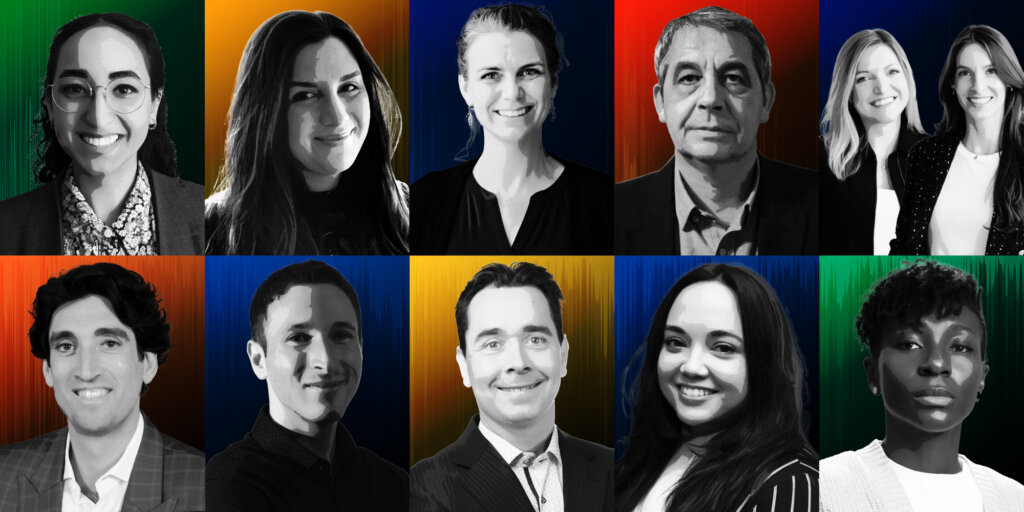Home » 11 Canadian Tech Entrepreneurs to Keep an Eye on in 2025
11 Canadian Tech Entrepreneurs to Keep an Eye on in 2025

Innovators across Canada are devising groundbreaking solutions to tackle pressing global challenges, ranging from renewable energy storage to more efficient diagnostic tools. As we approach 2025, their work holds the potential to significantly impact various sectors.
James Larsen leads e-Zinc in developing a long-duration battery system designed to store renewable energy more affordably than traditional lithium-ion batteries—up to 80% cheaper. This sustainable technology, utilizing zinc, aims to support essential services like hospitals and data centers during power outages, especially in regions prone to natural disasters. e-Zinc recently completed its manufacturing facility in Mississauga and is gearing up for its first commercial pilots.
Michael Midmer is at the forefront of diabetes management with Zucara Therapeutics, working on a new therapeutic that complements insulin treatment for type 1 diabetes. This innovative approach targets glucagon hormone regulation, potentially allowing patients to maintain stable blood sugar levels more effectively. With a successful funding round of U.S.$20 million, Zucara is advancing to Phase 2 trials and considering longer-acting drug options.
As supply chain inefficiencies persist, Mitch Debora co-founded Mosaic Manufacturing to streamline component production locally. The company’s "Array system" enables factories to 3D print necessary parts on-site, thus minimizing reliance on global shipping. After securing $28 million in funding, Mosaic aims to allocate resources towards rapid delivery solutions—a response to increasing regionalization trends.
Sheida Shahi's startup, Adaptis, utilizes AI to assess and mitigate the carbon emissions of buildings, responsible for approximately 30% of Canada’s greenhouse gases. By optimizing designs for adaptability and recyclability, they aim to drastically reduce both construction waste and energy costs. In 2024, Adaptis diverted over 6,000 tonnes of waste and is set to expand its goals further in 2025.
Amidst rising temperatures, Evelyn Allen aims to revolutionize HVAC systems at Evercloak. Using advanced graphene-oxide membranes, the company seeks to enhance cooling efficiency by up to 50% while minimizing greenhouse gas emissions. Following a successful funding campaign, Evercloak plans to deploy demonstration units and conduct further tests.
Pierre-Xavier Roy's Hydro Cool develops hydrogen-powered mobile refrigeration units to reduce emissions from freight transportation, which constitutes over 10% of Canada’s greenhouse gases. Targeting large retailers with massive fleets, the company is poised to launch its innovative units in partnership with key corporations.
Jackie Hanson and Suze Mason founded Sprout Family to provide reproductive health benefits through employers' plans, closing the gap in coverage for fertility treatments and surrogacy. With aspirations to broaden their platform in 2025, Sprout aims to enhance accessibility for individuals pursuing family planning.
Sam McWhirter co-founded NorthMiRS to offer holistic treatments for sepsis through microRNA technology, addressing the immune system dysregulation common in severe infections. The company has made strides with funding awards and animal studies, setting the stage for further development.
Vida Gabriel of TerraFixing focuses on direct air capture technology suited for cold climates, using zeolite filters to absorb CO2 efficiently. They plan to initiate a significant pilot project in Quebec, demonstrating their technology's effectiveness.
Lastly, Ibukun Elebute at CELLECT aims to transform reproductive health screenings by developing a non-invasive DNA collection device for menstrual blood, addressing cultural barriers and enhancing accessibility for screenings. The team is working on a prototype and funding opportunities.
These innovators represent a wave of change, targeting crucial issues with innovative and sustainable solutions set to emerge in the coming years.
MaRS Discovery District
https://www.marsdd.com/
MaRS is the world's largest urban innovation hub in Toronto that supports startups in the health, cleantech, fintech, and enterprise sectors. When MaRS opened in 2005 this concept of urban innovation was an untested theory. Today, it’s reshaping cities around the world. MaRS has been at the forefront of a wave of change that extends from Melbourne to Amsterdam and runs through San Francisco, London, Medellín, Los Angeles, Paris and New York. These global cities are now striving to create what we have in Toronto: a dense innovation district that co-locates universities, startups, corporates and investors. In this increasingly competitive landscape, scale matters more than ever – the best talent is attracted to the brightest innovation hotspots.


